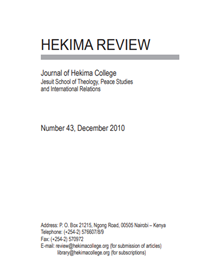The Waters of the Nile: From Potential Conflict to the Enhancement of Co-operation Potential in the Nile Basin
Keywords:
Nile, Potential Conflict, Co-operationAbstract
Upstream countries of the Nile River would like to use more of its waters. A country like Ethiopia claims that it could wean itself off food aid if it could irrigate from the river. However, Egypt and Sudan, who rely immensely on the Nile for livelihood, and who have been this far the main –even the sole – beneficiaries of the Nile waters, vehemently oppose any project that would jeopardize the availability of their freshwater supplies from the river. This has been a source of tensions between Egypt and Sudan on the one hand and the upstream countries of Rwanda, Burundi, D.R. Congo, Tanzania, Kenya, Uganda, Ethiopia, and Eritrea on the other. These tensions can become armed conflicts in the long run if nothing is done to ensure more appropriate access to water by all the riparian states of the Nile River, all of which are confronted with an ever-increasing population, drought, and irregular rainfall. This paper presents the genesis of the conflict and proposes a way of enhancing the cooperation potential within the Nile Basin to avert any armed conflict.
Downloads
Downloads
Published
Issue
Section
License
Copyright (c) 2024 Hekima Review

This work is licensed under a Creative Commons Attribution-ShareAlike 4.0 International License.


